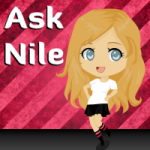 I speak and attend at a lot of WordCamps every year. Because I meet a lot of people online everyday, and some of them decide to go to one, of the questions I keep hearing, one is “What should I bring to a WordCamp?”
I speak and attend at a lot of WordCamps every year. Because I meet a lot of people online everyday, and some of them decide to go to one, of the questions I keep hearing, one is “What should I bring to a WordCamp?”
Before going further into this, for those who don’t know what WordCamp is, it’s a WordPress conference held in a local area (like St. Louis, or Chicago), that covers a wide variety of topics to educate attendees about WordPress. WordCamp Central explains WordCamp as:
WordCamps are informal, community-organized events that are put together by WordPress users like you.
Now, back to the question. Some people add the “this may be a stupid question” blurb, but it’s not. I get it. You want to be prepared. Usually by the time someone asks this question, they usually have bought their ticket to their local area WordCamp.
What Should You Bring to a WordCamp
Because you will be in a learning setting, and be learning a lot, here’s what you need to bring to a WordCamp:
- A writing utensil: You may need to take notes or use it to write down contact details if you’re doing any networking during the event. In case you forget, some of the sponsors may have pens that you can take and use.
- Note pad: You might want to jot down notes. Yes, you may have a computer, but some people really connect better with what they learn when they jot down something on paper. You can also use this for jotting down contact information. Again, some sponsors may have note pads as “swag”, but if they don’t, it’s best to be prepared.
- Business card: You will be networking, unless you just decide not to talk to anyone. Someone may find what you do in your business, as something they may need, so having a business card is important.
- Laptop or tablet: If you need to take notes, or need help at the Happiness bar (also known as Help Desk) at a WordCamp, then you will need to make sure to bring your laptop (or tablet.) Some of the helpers may not wish to log into your website to view your issue, especially if your problem involves security and possibly having an infected laptop. Personally, I never log into another’s website at a WordCamp because it’s happened to me a few years back. Also, it’s just better so you can see what’s happening on your computer and if something happens after getting help, the person helping doesn’t become possibly liable because the website owner decided to accuse the Help desk person for altering their site.
- Cell Phone: Of course, during the event, while attending a session, you’ll want to have a phone. You may want to take pictures of information-packed slides, pics of the presenter, or pics of the event as a memory keepsake.
- (optional) VPN: This is a virtual private network that puts a wall of security between yourself and public wifi. A lot of WordCamps don’t always have a set password on their public wifi, or a very secure connection, including universities and convention centers. While the facility does take some precautions, it’s better to take responsibility for your own computer and phone’s security to invest in a VPN. They aren’t expensive.
- An open mind: You may be an expert, but sometimes hearing a topic that you’re an ace at from another person’s perspective can open your eyes more. Be willing to listen, and also on occasion, chip in if the presenter has shown that they like feedback during or after the presentation that could enhance the topic. Just don’t steal the thunder by interrupting… that’s not really cool.
- A positive attitude: I know this sounds strange, but I’ve been to WordCamps, as an attendee in the audience, and as a speaker where someone was a griefer. They were really negative and always had something unkind to say. I get it… not everything is sunshine and rainbows, but this event is suppose to be encouraging and allow people to learn. Share your not so sad stories with close friends that are attending, or leave the rotten baggage at the door. No one wants to hear it. If you aren’t digging the event, tell an organizer, or wait until the WordCamp event email survey comes up. Or, use the WordCamp event’s contact form to let them know your thoughts. There’s a much better way to do it, and not seem like a “jerkface.”
- (optional) Twitter account: There’s social media coverage, and sometimes even media coverage. Share the event with your followers by quoting presenters, sharing pics, or tweeting other power Twitter users (like myself – @blondishnet on Twitter.) You can always pic up extra information you missed, like slides from a session you couldn’t attend, or perhaps an interesting pic from the event you happened to be a part of.
I hope this helps answer on what to bring to a WordCamp. If you’re new to attending WordCamps, that’s awesome! I hope to see you at one in the near future.
If you’ve attended WordCamps, what are your other things that you recommend attendees bring to a WordCamp?

Very informative post , everything is described very well in your post. Learn a lot from your blog.Thanks for this amazing article, your strategies are really mind blowing…Nile keep updating us.
Hi Nile,
You are great in this post what i had seen here… every point has mention so everyone can understand. Thanks a lots for sharing.
Regards
Rama Krishna